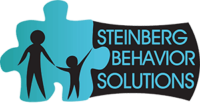The Fourth of July: America’s birthday, a day that many of us look forward to as this celebration is often paired with warmer weather and a welcoming break from the typical routine. While many may look forward to this holiday, for those with autism or sensory-sensitivities, the Fourth of July experience may be met with anxiety, frustration, and other behaviors that may prove difficult to manage. The result is an uncomfortable day at best and completely aversive day at worst.
- Make a visual schedule: Some people are overjoyed at the prospect of a break from their ordinary schedule. However, those who rely on their schedules for balance and predictability will experience this change in routine very differently. The idea of an entire day that strays from a typical schedule can create a lot of anxiety in a person with autism. Your child may engage in noncompliance and refusal, an increase in self-stimulatory behaviors, and possibly even some tantrums and/or aggression.
- In order to be sensitive to their usual comfort and dependence on sameness, the most important thing that you can do for someone with autism is to prepare them for the change. A person is likely to respond more positively if they are aware of what changes are to come within their day. If your child has a history of using pictures to organize their day, try making a visual schedule that illustrates the events that will occur during this day.. Talk with your child about who they can expect to see at the events, what kinds of activities will be there, and when you are expecting to return home.
- Prepare others for how to interact with your child: It’s not uncommon for those with autism to feel overwhelmed or overstimulated by attending events with a large crowd of people. If you’ll be attending a get together with familiar people, it’s wise to not assume that just because the people in attendance will be known will result in a successful outing for your loved one with autism. It may not matter if the people are known or strangers, but rather being around many people talking, laughing and interacting can be incredibly overwhelming and overstimulating for some. Depending on your child’s needs and your comfort level with the others in attendance at the event, prepare the others by letting them know how to best interact with your child. For example, if your kid does not like to be touched, encourage guests to say hello and interact, but not to try to hug or high five your child. Simply letting the people around you know how your child likes to be interacted with can greatly improve their experience.
- Establish a calm space: Another strategy you can use to address overstimulation is to establish a quiet spot at a get together/event. This can be a room inside or a spot outside, away from others, where you kid can go when they become overwhelmed, to have some alone time or to quietly play a game with you, a sibling or a close friend.
- Prepare for the grand finale: Fireworks! As with large crowds, the loud noise and bright lights of fireworks can cause someone with autism to become incredibly overwhelmed and overstimulated. While some may find the stimulating lights of fireworks calming and exciting, some individuals with autism are incredibly sensitive to sound and light. If your child experiences these sensitivities, there are a couple of things you can do to help decrease the likelihood of discomfort and outbursts.
- The first and most basic strategy is to prepare your child with a pair of noise canceling headphones. This results in being able to stay with the group, and enjoy the visual array of bright lights, but the loud noises will be muffled and less disturbing. If just the headphones are not enough, consider providing your child with access to preferred and calming items that can serve as a distraction to the loud noises that come with fireworks. This allows him/her to remain with the family/group and to participate in the event in a way that is comfortable for them. If this is still too overwhelming, you can watch fireworks from a distance or from indoors in an attempt to minimize the noise and commotion.
These are just a few suggestions for creating a less aversive holiday for you and your friends or family with autism. If you are able to prepare ahead of time, bring along preferred items to use during breaks/quiet time, and be sensitive to the many sensory needs and difficulties that come up on the Fourth of July, you will go in to the day with the tools in place for a fun and successful holiday celebration!
